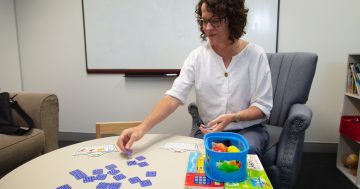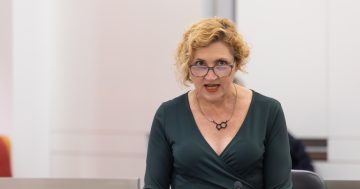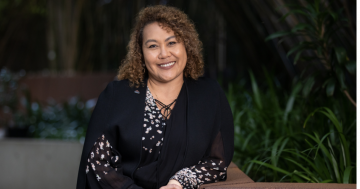
Speech Pathology Week highlights the struggles faced by people with a communication disability during the COVID-19 pandemic. Photo: Speech Pathology Australia.
The pandemic has amplified the sense of isolation for many people living with a speech disability, with lockdowns and mandatory masks making communication even more difficult.
Speech Pathology Australia president Tim Kittel says 1.2 million Australians struggle to communicate, and this number is tipped to increase as the pandemic drags on.
“If so many Australians are having difficulties understanding and using language, their entire ability to access and influence the world is impaired,” he said.
“This is further impacted by the complicated COVID-19 environment we live in.”
During Speech Pathology Week, which runs from 22 to 28 August, the focus is on human rights, with the theme, ‘Communication is everyone’s right’.
“Speech Pathology Australia wants people with communication disability to be heard and recognised without judgment,” Mr Kittel said.
A recent British-led patient study, which analysed data from more than 3,700 people with COVID-19 seven months after contraction, found speech and language communication difficulties were detected in 48.6 per cent of respondents.
Mr Kittel says many Australians have poor health literacy, meaning a lot of communication disability goes undiagnosed, or people don’t know where to seek help and are at higher risk of poor health outcomes.
Children with communication disability are more likely to be suspended from school, and many people in juvenile and adult justice settings have a communication disorder.
He says intervention is required to drive improvement on health illiteracy and to spotlight associated injustices.
“People who can’t communicate, who can’t understand information, or who can’t structure coherent arguments are ultimately at risk of being overlooked and not having their rights respected,” Mr Kittel added.
“Success within entire systems including health, education and justice relies on the ability to communicate effectively.
“When people can access information, they are in control. They can make informed choices and ask questions.
“We recognise that it’s important to be able to read and understand text, but we also need to recognise that being able to listen and speak is just as vital. And for 1.2 million Australians, this is not something that is easy to do.”
For more information about speech pathology services, visit Speech Pathology Australia.


















